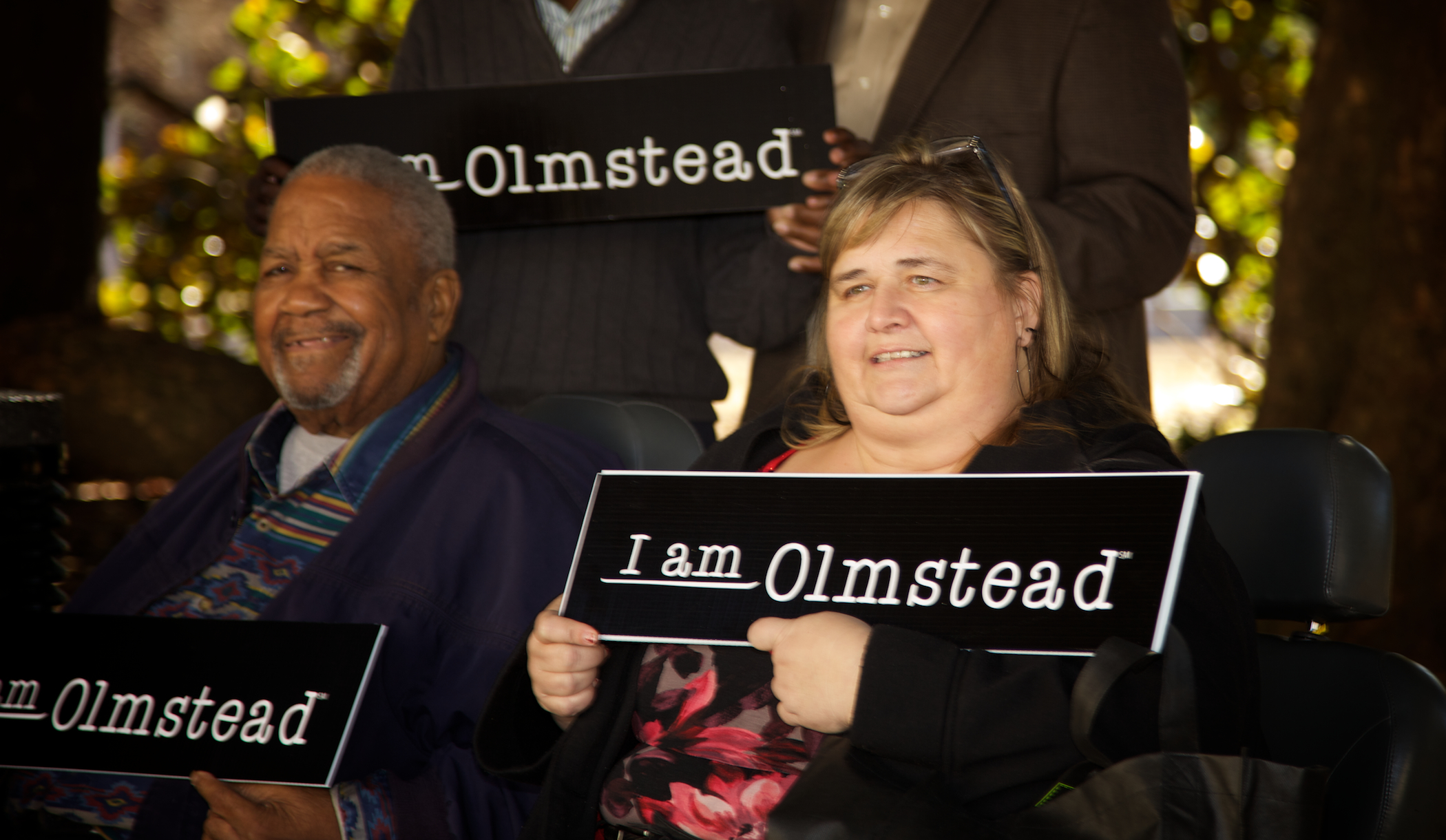Cheri's Story: Fighting for Olmstead
.JPG)
Cheri's late husband Sam also had a disability. Unlike her, however, he was not lucky enough to avoid being put in a facility. Cheri still remembers with disgust his recollections of the years he spent there. He related that in the nursing “home” everything eventually became community property; there was no privacy and no modesty, especially between the nurses and patients. “My late husband told the story of sitting on the toilet and the nurse walking in.” Such events were disturbingly common, passing unnoticed and undisputed.
 “A real home is where you have the key and you have control of the door,” Cheri states. “In a nursing facility, you don't have any control.” What is worse, the people who do have control are much more mindful of taking advantage of their charges than actually assisting them. Residents are left without authority or choices in their lives. “That's not a home,” Cheri insists. “And I think that people with disabilities deserve a real home, just like everybody else.”
“A real home is where you have the key and you have control of the door,” Cheri states. “In a nursing facility, you don't have any control.” What is worse, the people who do have control are much more mindful of taking advantage of their charges than actually assisting them. Residents are left without authority or choices in their lives. “That's not a home,” Cheri insists. “And I think that people with disabilities deserve a real home, just like everybody else.”
Cheri cites the Olmstead decision as the one thing shielding her from a nursing home. “[Olmstead] helps me stay in the community and not be locked away.” Although she now requires a power chair to move and has assistants who live with her, Cheri is as determined as ever to live a full, meaningful life. “It is what it is,” she says bluntly. “I do whatever I want, I just may not do it the way I used to do it.”
Unfortunately, despite her intrepid attitude, there are significantly more obstacles between her and living a “normal” life than there were ten years ago. “The thing is, poverty's a big issue for people with disabilities,” she confides. Without the people who aid her, she would be in a nursing home, and she cannot work a full-time job because she needs her services and would lose them if she made too much income.
“There's just so many barriers,” Cheri sighs. “The system itself is segregating people into poverty and out of good lives.” The answer seems to lie with becoming more aware of disability issues and making sure that all people are equally provided for. As Cheri herself said, “people with disabilities deserve a real home, just like everybody else.” Every life is important, not just those of people who can already take care of themselves.